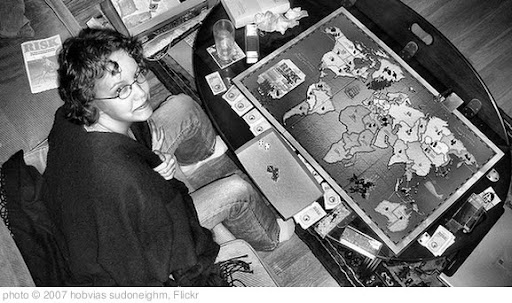In what follows, you will read an “academic paper” in which I explore some elements of open theism (the link is to a brief introduction to open theism). This is a view of God’s foreknowledge that is controversial, but still in the evangelical family of belief. The most well known Christian leader who holds to this view is Greg Boyd. This will be a nine part series.
———————————————————————-
Other Old Testament Considerations
If the story of Abraham and Isaac were the only example of God not knowing something that would come to pass, then “the binding of God” interpretation could be dismissed as inconsistent with the larger witness of the Old Testament. In reality, there are several instances that demonstrate God’s intimate involvement with humanity, which leads him to facing a partially open future. Noah, for instance is rooted in a situation where God regretted “that he had made humankind on the earth” (Genesis 6.6). This suggests that God hoped that things would have turned out a different way, but they did not. There are several other instances that point to the regretting of God about particular situations such as Saul’s kingship (1 Samuel 15.35). These indicate that God takes risks (see also our exploration of Genesis 3 above) by working with human free will, even if the possibility of flawed results exists as a natural consequence.[1] As Greg Boyd states: “…the only way to deny that God takes risks is to maintain that everything that occurs in world history is exactly what God wanted to occur.”[2]
Not only is God a risk taker, but he also asks questions about future events and their outcomes (see: Numbers 14.11 and Hosea 8.5). This certainly implies that from God’s sovereign perspective that the future is not completely settled. At other times, God experiences surprise (this is not to say it caught him off guard, but that he did not know that such would come to pass with certainty). Jeremiah depicts God as having thought that Israel would return to his righteous covenant, when they did not (3.6-7, 19-20). God, as understood by the open view, knew that this outcome was a possibility, but perhaps held out hope that his people would not actualize disobedience at such a level. Boyd states: “If the future consists in part of possibilities, then God can infallibly think that a particular possibility has the greatest chance of occurring, even if it turns out that a less likely possibility actually occurs.”[3]
Another example of God facing a partially open future is that God often speaks in conditional terms. A clear example of this is found in Exodus 13.17 which states: “If they face war, they might change their minds and return to Egypt.” Clearly God is speaking in terms of a possibility, not a settled matter.[4] Egypt in itself may give us a model for thinking about the dynamics of God’s relationship with his covenant people.
God’s Sovereignty Conditioned in Relationship
Walter Brueggemann gives us a way of thinking about the merging between the sovereignty of God and the dynamic relationship he has with humanity in general and Israel in particular (in the Old Testament). He notes a God who is “sovereign in relationship” rather than being distant.[5] This sovereignty is such that God’s grace and mercy have been identified with a particular people, Israel – who were rescued from slavery in Egypt. God chose to identify with their plight in fidelity with their suffering, which is given as a function of sovereignty and enfleshed through open-ended engagement with this people.[6]
An example of this open-ended engagement is demonstrated by God’s action as a just judge (notice the concreteness of this image). A judge invites a system of justice: either the pharaonic or covenantal.[7] Pharaoh’s justice is oppressive slavery and economic hierarchy. The Lord’s justice is egalitarian, always in fidelity with the vulnerable. Israel was liberated into true justice, only to eventually use their freedom to turn from God’s sovereign design by imposing “forced labor” for the construction of the Temple. Liberated slaves created a social hierarchy that resembles the Pharaoh-Judge rather than YHWH-Judge.[8] Israel walked away from the blessing of cult and relationship with their just Judge. Throughout the Old Testament God would “hear the cry” of his rebellious people and then “liberate” them from calamity that was cause by their choosing of Pharaoh’s way over God. In this way, God related to his people in sovereignty while allowing them the freedom to go their own way.
The Binding of God and a Partially Open Future
It has been demonstrated that the Old Testament has several examples of God allowing people to exercise their freedom. Therefore, God often needed to find out information about them that he would not otherwise have at his disposal. This is evident in “the binding of God” passage in Genesis 22 and throughout the Hebrew Bible. The Bible seems to teach that God faces a partially open future because he has granted humans free will. This does not necessarily mean that there are not settled matters in the future such as prophecy and fulfillment, but that individual choices are not predetermined as such would be paradoxical. God’s sovereignty in relationship gives us the assurance that he is capable of working with humanity to bring the drama of redemption (as initiated in the covenant with Abraham) to its eventual resolution. This will mean the eventual blessing of every square inch of the cosmos. So, although God may be in a bind in that he has chosen not to coerce people into obedience (and therefore may not know every decision we will make), he is willing to walk with us to the mountain of sacrifice to discover if our hearts truly belong to his purposes in the world. The God who is bound is the God who makes us free!
[1]. Gregory A. Boyd, God of the Possible: A Biblical Introduction to the Open View of God (Grand Rapids, Mich.: Baker Books, 2000), 55-57.
[2]. Ibid., 58.
[3]. Ibid., 61.
[4]. Ibid., 69.
[5]. Walter Brueggemann, Old Testament Theology: An Introduction, The Library of Biblical Theology (Nashville: Abingdon Press, 2008), 85ff.
[6]. Ibid., 86-88.
[7]. Ibid.
[8]. Ibid., 105.












